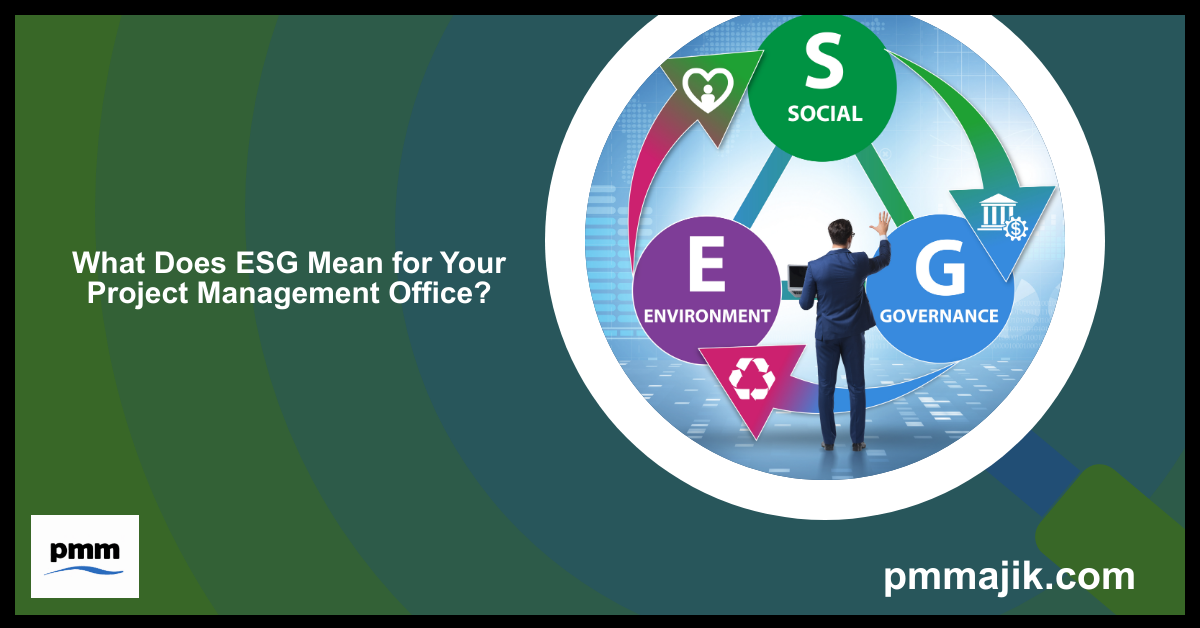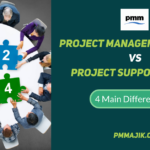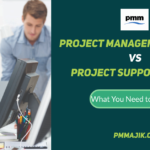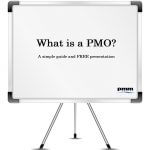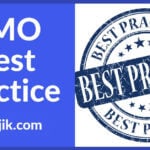Environmental, social, and governance (ESG) concerns are a hot topic in the corporate world. You’re probably hearing conversations about it in many areas, but what does ESG mean for your project management office (PMO)?
The trend towards businesses being more sustainable, ethical, and considerate of the future has been building for years. It’s now reaching a critical point, with over US$35 trillion being invested in ESG-focussed businesses in 2020.
Your PMO can help the wider business contribute to its ESG goals and even take the lead in some areas – your office is all about good governance, after all. To help you build ESG into your PMO, we’re going to look at:
- A breakdown of how each element is relevant to your PMO
- Why you need to focus on ESG in your PMO
- How to embed ESG into your office’s processes and ethos
- Changing KPIs to take ESG into account
And we’ll be diving deeper into each topic in coming articles.
How is ESG relevant to my PMO?
If ESG isn’t part of your company ethos yet, you can expect it to be soon. The three factors are becoming an increasing area of focus for all businesses, and you can get ahead of the curve if your business hasn’t started working on them yet.
Here’s a broad outline of each:
- Environmental – global warming is a pressing issue, and businesses and projects need to understand what they can do to reduce impact, reuse resources, and recycle what gets produced.
- Social – how a project impacts the people in the business – think burnout and upskilling – and the wider area, such as offering training, ethical sourcing, etc are all things that your PMO has direct control over.
- Governance – this is a major focus of a PMO, and there are lessons you can take out to the wider business to ensure strong decision-making, better management, and compliance with legal requirements to improve a business.
How can ESG affect projects?
There’s a good reason why ESG is becoming so popular in the business world – it has positive effects across a business. Some of the key reasons ESG has come under such scrutiny are:
- It’s important to clients and investors – the people who want to work with you want to work with a sustainable and ethical business; if it’s not part of your business focus, it’s likely already part of theirs.
- It reduces costs – there may need to be some time and money spent on new processes, but in general, you’ll see lower costs when your projects build in ESG considerations.
- Increased productivity – you should be able to get more out of your resources when you focus on sustainability, plus your team should be more motivated when you focus on their needs.
- It reduces risks – ESG is a major focus of governments and regulatory bodies, so building in good environmental practices, for example, will reduce the chance of falling foul of laws and rules in your industry.
How can I embed ESG into my projects?
When working on ESG, there can be a concern about greenwashing. This is when your PMO might be paying lip-service to these issues and not making them the focus of your work.
You need to ensure that ESG is the core around which you build or rebuild your PMO to get it right. It needs to be part of the culture.
ESG aims need to be specific. Set targets about what you want to see achieved in terms of carbon footprint, employee and community engagement, and good governance.
Make ESG a target for each and every person working on a project. By drilling down responsibility to everyone, you can ensure they care about the considerations.
Don’t try and fudge your ESG figures and efforts. You won’t always get things right, and you might be starting from a very low baseline. This is ok – you have something to build on, but make sure you’re honest about ESG from the start.
Do I need to change KPIs to encompass ESG?
Your KPIs should have ESG at their heart. This ensures that your PMO truly aligns with the goals set out by an ESG policy you design.
You can consider adding new goals about sustainability and social aims. Assess the current KPIs and see if they can also be adapted – issues like procurement can be updated, and the lowest cost requirements can have an ESG exception built-in.
ESG and your PMO
You need to shift your PMO to focus on ESG now, whether it’s come into the wider business’ crosshairs or not. We’ve given you a brief rundown of what ESG means for your PMO, and we’ll get into more details in the coming weeks.
